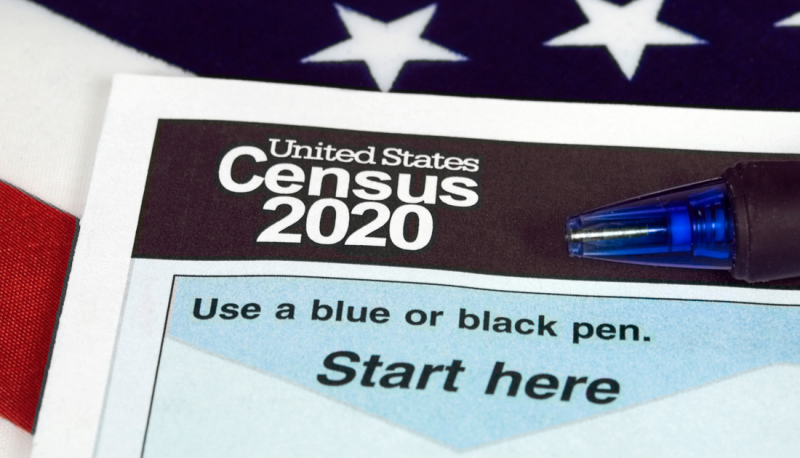People For the American Way Foundation wants to stop the census citizenship question in its tracks. We are joining organizational allies to file friend-of-the-court briefs in cases challenging this dangerous anti-immigrant proposal. It will undermine the integrity of the census count, damage people of color and other marginalized groups, and violate the Census Bureau’s constitutional and statutory duties. As filed July 24 in California v. Ross:
INTERESTS OF AMICI
Amici are organizations committed to the protection of civil and human rights in the United States.1 What unites this coalition is an interest in ensuring that all communities—particularly the young children, women, immigrants, low-income communities, and communities of color whom amici represent—continue to enjoy the recognition, freedom, and economic and political power to which they are entitled under the U.S. Constitution. The government’s addition of a citizenship question to the 2020 census gravely threatens to undermine that goal. What is more, the government cynically invokes our communities’ purported interests as its justification for a policy that jeopardizes those interests.
Amici know very well: A fair and accurate 2020 census is a critical civil rights issue. The constitutionally-mandated census is central not only to apportioning political power at every level of government, but also to shaping the annual allocation of more than $800 billion in federal funding, along with countless policy and investment decisions by government agencies, nonprofit organizations, and private enterprise. Given its foundational importance to American government and society, the census must be above partisan politics. The misguided decision to reverse 70 years of consistent census practice and insert an untested citizenship question damages our communities, undermines the integrity of the count, and violates the Census Bureau’s constitutional and statutory duties to conduct a full enumeration of the U.S. population.
SUMMARY OF ARGUMENT
Amici have spent decades advocating, educating the public, and litigating about issues concerning full and equal participation in the American political process, and so have vast knowledge and experience concerning the census and the uses to which it has been—and should be—put. This brief addresses several issues on which defendants have staked their defense of the citizenship question and as to which amici are uniquely equipped to provide guidance to this Court.
First, defendants contend that plaintiffs lack standing because inclusion of the citizenship question will not suppress response rates or lead to an undercount, and that in any event the deleterious effects plaintiffs allege will follow from an undercount are all speculative and contingent. Amici and our constituencies have spent decades in the field, working with communities to ensure full participation in the census. Our experience and the findings of social scientists and other census experts all confirm that including the citizenship question will lead to depressed participation, particularly among families that include immigrants, young children, and people of color. Indeed, the current reactions in our communities to the prospect of a citizenship question that amici are witnessing first-hand fully support plaintiffs’ standing. Moreover, contrary to the government’s claims, the history of the census does not disprove the inevitably damaging effects of including a citizenship question on the 2020 census. In truth, the last census to have asked all respondents to indicate their citizenship was in 1950, prior to the enactment of the Voting Rights Act and path-marking Supreme Court decisions confirming core constitutional protections for equal voting rights and political representation.
Second, defendants contend—cynically and incorrectly—that inclusion of the citizenship question is necessary to ensure proper enforcement of the Voting Rights Act. That claim should be rejected. As we know from our own experience, the Voting Rights Act has been enforced effectively throughout its history notwithstanding the absence of a citizenship question on the census. Including the question now for the first time would only hinder, not assist, Voting Rights Act enforcement.
We plan to reissue this brief as developments warrant:
- 7/24/18: Brief filed in City of San Jose v. Ross
